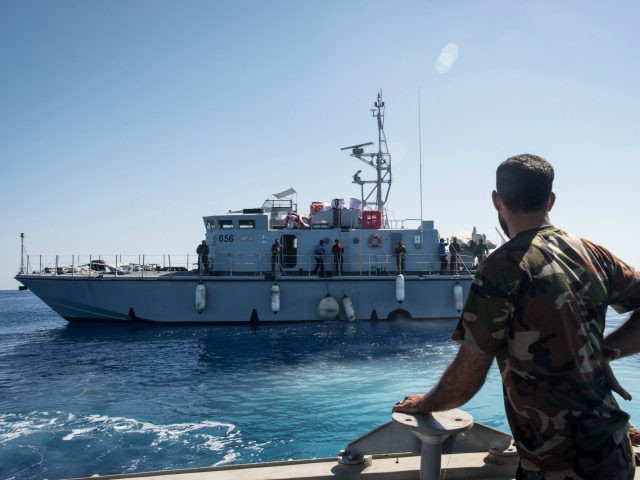The number of migrants trying to cross the Mediterranean Sea has rapidly declined in the last few weeks and many are giving credit to efforts by the Libyan coastguard. Others have criticised their methods.
Libya’s tough measures have proven to have drastically decreased the number of migrants heading across the Mediterranean to Europe, according to new reports.
The number of migrants who crossed the sea in August 2016 was over 20,000; following Libya deterring pro migrant rescue NGOs, the number has been a mere 2,080 in the first half of this month, Berliner Morgenpost reports.
The numbers have dwindled so much that NGO Médecins Sans Frontières (MSF) put out a statement lamenting that they had not seen any migrant boats in days. There was a period earlier this month for five days in which no boats set sail into the Mediterranean.
The Libyans have been backed up by the Italian government who came down hard on NGOs in recent weeks, forcing them to sign a code of conduct which would see more government oversight and transparency in their operations at sea.
The methods of the Libyan government have been praised by some, like the hipster-right Identitarian youth movement’s “Defend Europe” mission who offered their assistance to the Libyans in removing NGOs from the search and rescue (SAR) zone who they accuse of working with people smugglers.
Our message to the Libyan authorities and the inhabitants of Tripoli, so they support us to put an end to the traffic of migrants. pic.twitter.com/n1MS8L38Ik
— Defend Europe (@DefendEuropeID) August 16, 2017
The migrant rescue NGOs have not been as pleased with the Libyan coastguard or the Italian government’s actions which led to many NGOs suspending their migrant rescue missions. Those who did not, like Spain-based Proactiva Open Arms, were confronted on more than one occasion by the Libyans who fired warning shots near their vessel and told them to vacate the area.
Video of Libyan coast guard firing warning shots at Proactiva @openarms_fund. The same CG that Europe is training and supplying gear to. pic.twitter.com/wvmcYfyCmi
— Zach Campbell (@notzachcampbell) August 8, 2017
Many predicted that at least 200,000 migrants would cross from North Africa in 2017, but the forecast now looks unlikely due to the actions of Italy and Libya.
Whilst the Central Mediterranean route may have considerably slowed down, just as the Balkan route slowed in 2016, many fear the possibility of a new route opening in Spain.
Earlier this week, hundreds of migrants arrived off the Spanish coast and were rescued by Spanish authorities. So far, 9,000 migrants have reached Spain this year, far more than 2016.
Authorities in Romania are also sounding an alarm claiming that the Black Sea may be opening up as a new migrant route after they discovered 69 Iraqis earlier this week.

COMMENTS
Please let us know if you're having issues with commenting.